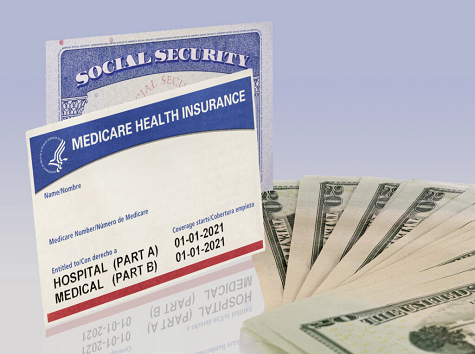Section 2-4: Social Security and Medicare Taxes
Section 2-4: Social Security and Medicare Taxes
Overview

 Social Security and Medicare taxes, often collectively referred to as FICA taxes, are payroll taxes imposed by the U.S. federal government to fund the Social Security and Medicare programs. These taxes are automatically withheld from employees' paychecks and are also paid by employers on behalf of their employees.
Social Security and Medicare taxes, often collectively referred to as FICA taxes, are payroll taxes imposed by the U.S. federal government to fund the Social Security and Medicare programs. These taxes are automatically withheld from employees' paychecks and are also paid by employers on behalf of their employees.
Here's a breakdown of Social Security and Medicare taxes:
Social Security Tax (OASDI): Social Security tax funds the Old-Age, Survivors, and Disability Insurance (OASDI) program, which provides benefits to retired workers, survivors of deceased workers, and disabled individuals. As of 2022, the Social Security tax rate is 6.2% for both employees and employers, up to a maximum taxable earnings cap. For 2022, the maximum taxable earnings subject to Social Security tax is $147,000. Any earnings above this cap are not subject to Social Security tax.
Medicare Tax: Medicare tax funds the Medicare program, which provides health insurance coverage primarily for individuals aged 65 and older. The Medicare tax rate is 1.45% for both employees and employers, with no earnings cap. Additionally, employees with high incomes may be subject to an additional Medicare tax of 0.9% on wages above certain thresholds: $200,000 for single filers, $250,000 for married couples filing jointly, and $125,000 for married couples filing separately.
Total FICA Tax: When combined, the Social Security and Medicare taxes make up the total FICA tax. For most employees, the total FICA tax rate is 7.65% (6.2% for Social Security tax + 1.45% for Medicare tax). However, high-income earners subject to the additional Medicare tax will pay a total Medicare tax rate of 2.35% (1.45% regular Medicare tax + 0.9% additional Medicare tax) on wages above the applicable threshold.
Employers are responsible for withholding Social Security and Medicare taxes from employees' paychecks and remitting these taxes, along with their own share of these taxes, to the IRS. Self-employed individuals are responsible for paying both the employee and employer portions of Social Security and Medicare taxes through self-employment taxes.
Videos (Click on Image to View Videos)
Online Textbook Read Section 2-4: (Social Security and Medicare Taxes)
